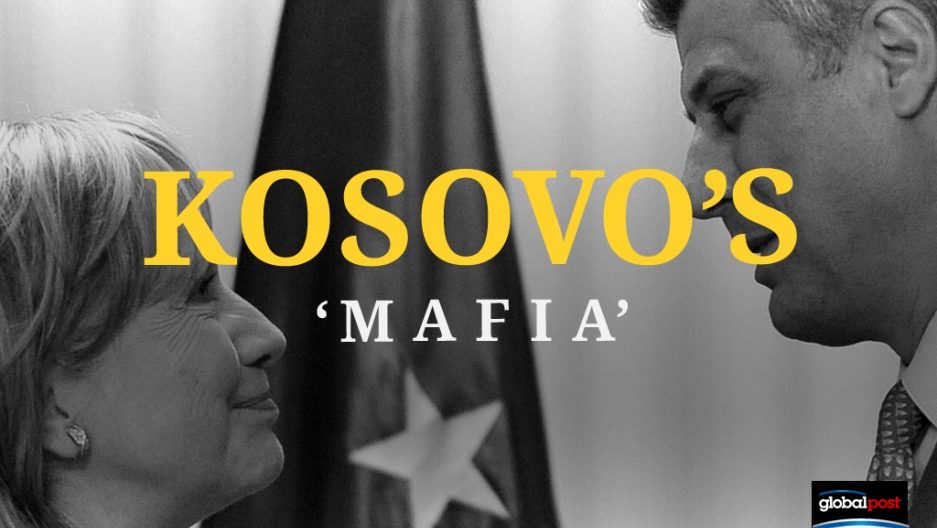Nato-ledede styrker, der kæmper med at holde fred i provinsen et år efter krigen, har ikke mandat til at bekæmpe nakotikahandlen, og med udvisningen af det serbiske politi fra Kosovo, herunder dens "4. enhed" specialiseret i narkotika leder smuglerne "Balkanruten" med fuldstændig frihed.
Fredssoldaterne fra K-For "kunne lige så godt være kommet fra en anden planet, når det kommer til at håndtere disse fyre", siger Marko Nicovic, en advokat og vicepræsident for det internationale narkotikabekæmpelsespolitis forening i New York.
"Det er den sværeste narkotikaring at bryde, fordi den helt køres af familier, og de har endog deres eget sprog. Kosovo er på kursen til at blive Europas cancercenter, som Vesteuropa snart vil opdage." sagde han.
Kommentar: Delvist oversat af Sott.net fra
'Colombia' of Europe: Albanian mafia in Kosovo poised to become main supplier of heroin to Europe and North America
He estimates that the province's traffickers are now handling between 4.5 and five tonnes of heroin a month and growing fast, compared to the two tonnes they were shifting before the Kosovo war of March-June last year, when Nato bombing forced Serbia's regime to pull out of the largely ethnic-Albanian province.
"It's coming through easier and cheaper - and there's much more of it. The price is going down and if this goes on we are predicting a heroin boom in western Europe as there was in the early 80s."
A heroin trafficker in Belgrade confirmed to the Guardian that since the war the Kosovo heroin dealers, most of them from four main families, are concentrating on the western Europe and US markets.
A kilo of heroin that is worth £10,000 in Kosovo or £20,000 in Belgrade can make £40,000 on the British, Italian or Swiss markets, said that 24-year-old heroin middleman. He expected the Kosovo route to grow: "There's nobody to stop them."
Only half the promised 5,000 policemen have arrived to join the peace operation in the province, which is now the main route for heroin flowing through some of the world's most troubled countries, Afghanistan, northern Iran, the southern states of the Russian Federation, Azerbaijan, Turkey, Kosovo and into western Europe and the US.
"It is the Colombia of Europe," said Mr Nikovic, who was the chief of the Yugoslav narcotics force until 1996. "When Serb police were burning houses in Kosovo they were finding it [heroin] stuffed in the roof. As far as I know there has not been a single report in the last year of K-For seizing heroin. They are soldiers not criminal investigators."
Echoing this, an official at Nato in Brussels said: "Generals do not want to turn their troops into cops ... They don't want their troops to get shot pursuing black marketeers."
There is no evidence that the ethnic Albanians' Kosovo Liberation Army is involved directly in drug smuggling, but according to the British-based International Police Review published by Jane's they may be dependent on the drug families who, the Review says, partly funded the KLA's operations in Kosovo last year.
Comment: Oh it's the KLA alright, aka al-Qaeda-in-the-Balkans, aka al-CIA-duh.
When drug squad chiefs from northern and eastern Europe met in Sweden 10 days ago, the Balkan route was the main issue, according to the head of the Czech narcotics agency, Jiri Komorous: "There are four paths of drug trafficking through the Balkans to western Europe and we have to improve our attempts to control the Kosovo Albanians."
The Kosovo mafia has been smuggling heroin since the mid-80s - but since the Kosovo war they have come into their own, according to Mr Nicovic: "You have an entire country without a police force that knows what is going on."
The Kosovo Albanian mafia is almost untouchable. "Everything is worked out on the basis of the family or clan structure, the Fic (brotherhood), so it is impossible to plant informers," said Mr Nicovic.
"Their diaspora have been in Turkey and Germany since Tito's communist purges so the whole route is set up. Now they have found the one country between Asia and Europe which is not a member of Interpol."
To Britain, he said, there are two routes: "By truck through Germany, Belgium and France and then via Dover - and also through Budapest, Poland, the Netherlands, then to Britain."
Responsibility for organising police work in Kosovo "is a grey area", said the Nato official, but "if organised crime goes on thriving it will have international ramifications".




Kommentar: And how did Colombia become synonymous with being the main source of hard drugs in the Western hemisphere? 'Plan Colombia'... In Colombia, it's right-wing death squads. In 'Greater Albania', it's jihadi death squads. To the Empire, it's six of one, half dozen of the other. And hard drugs grease the wheels of both.